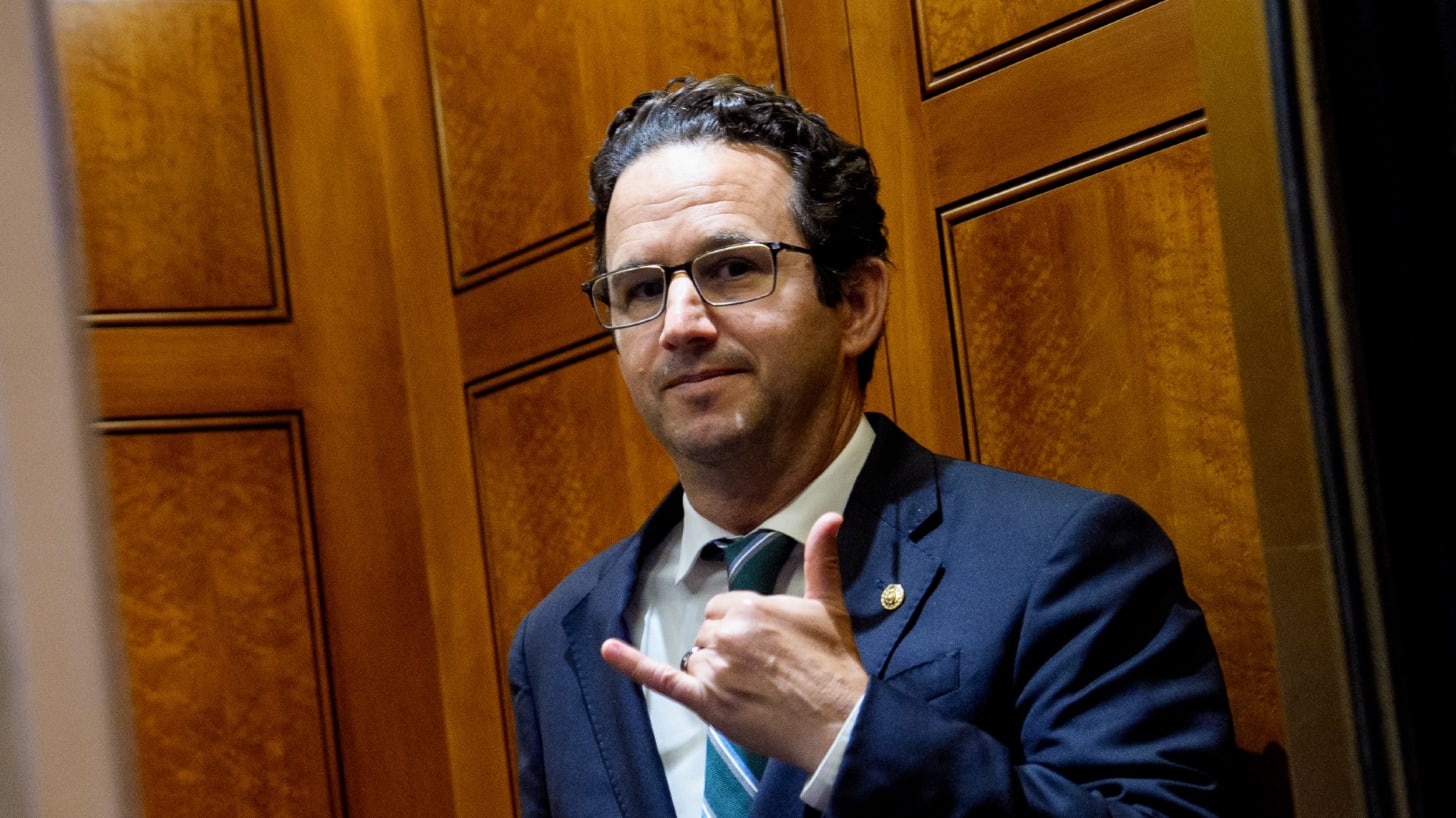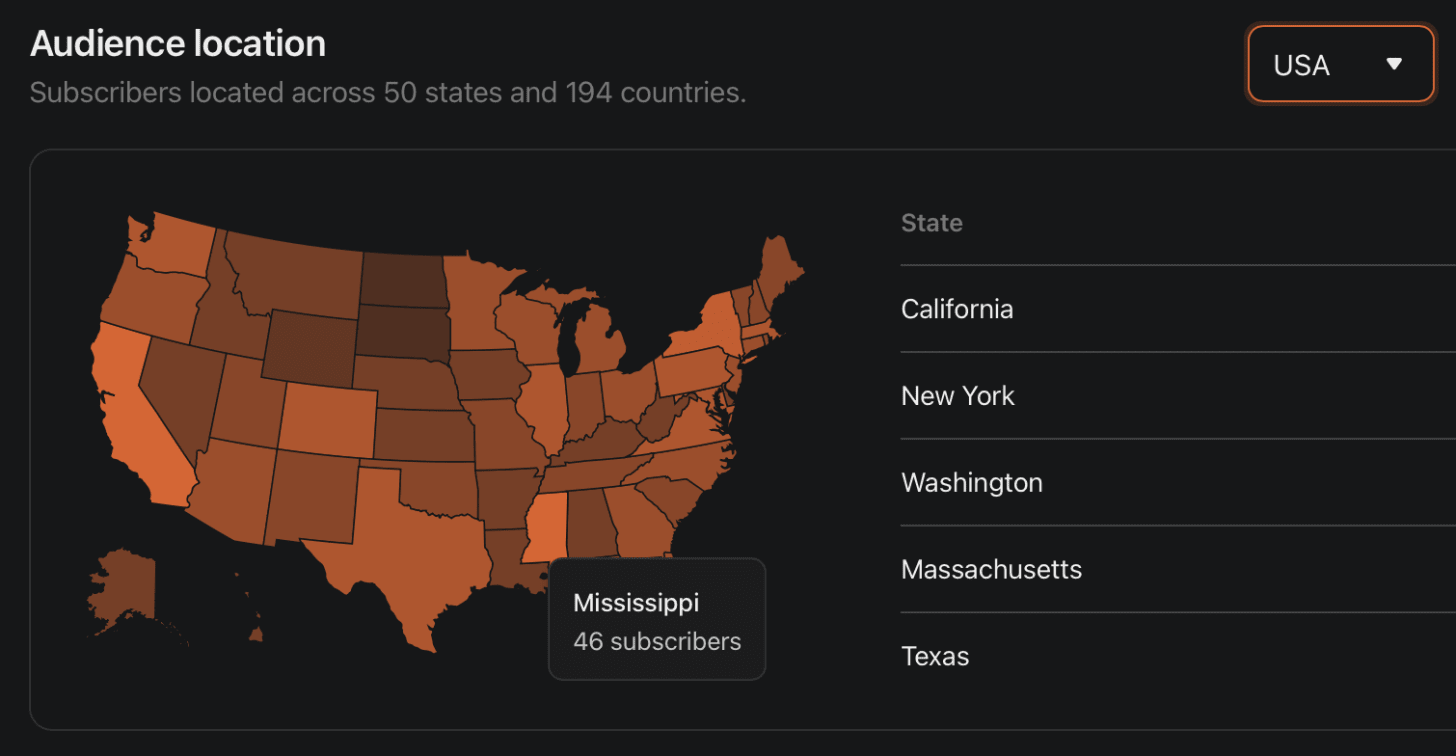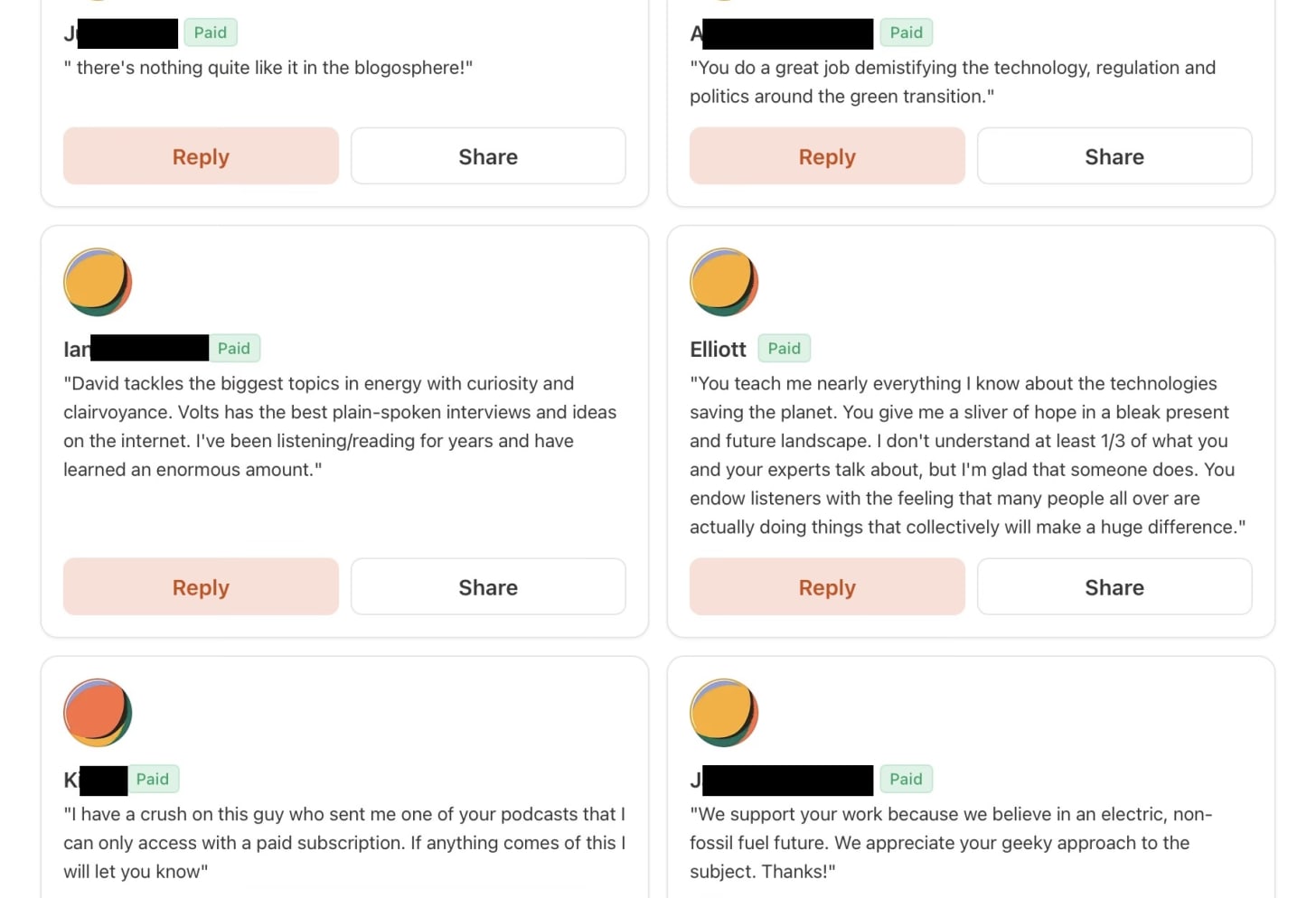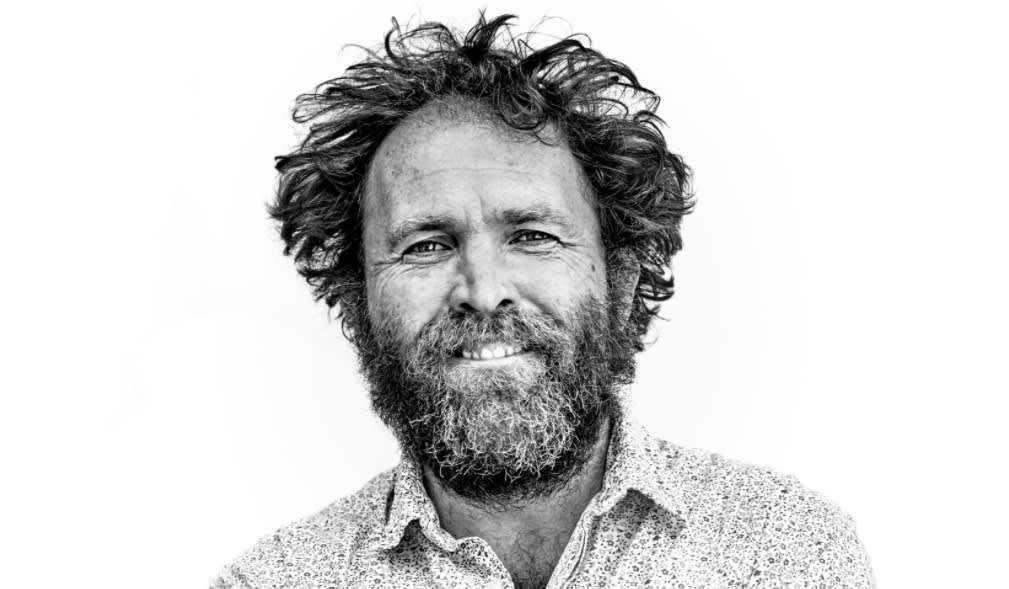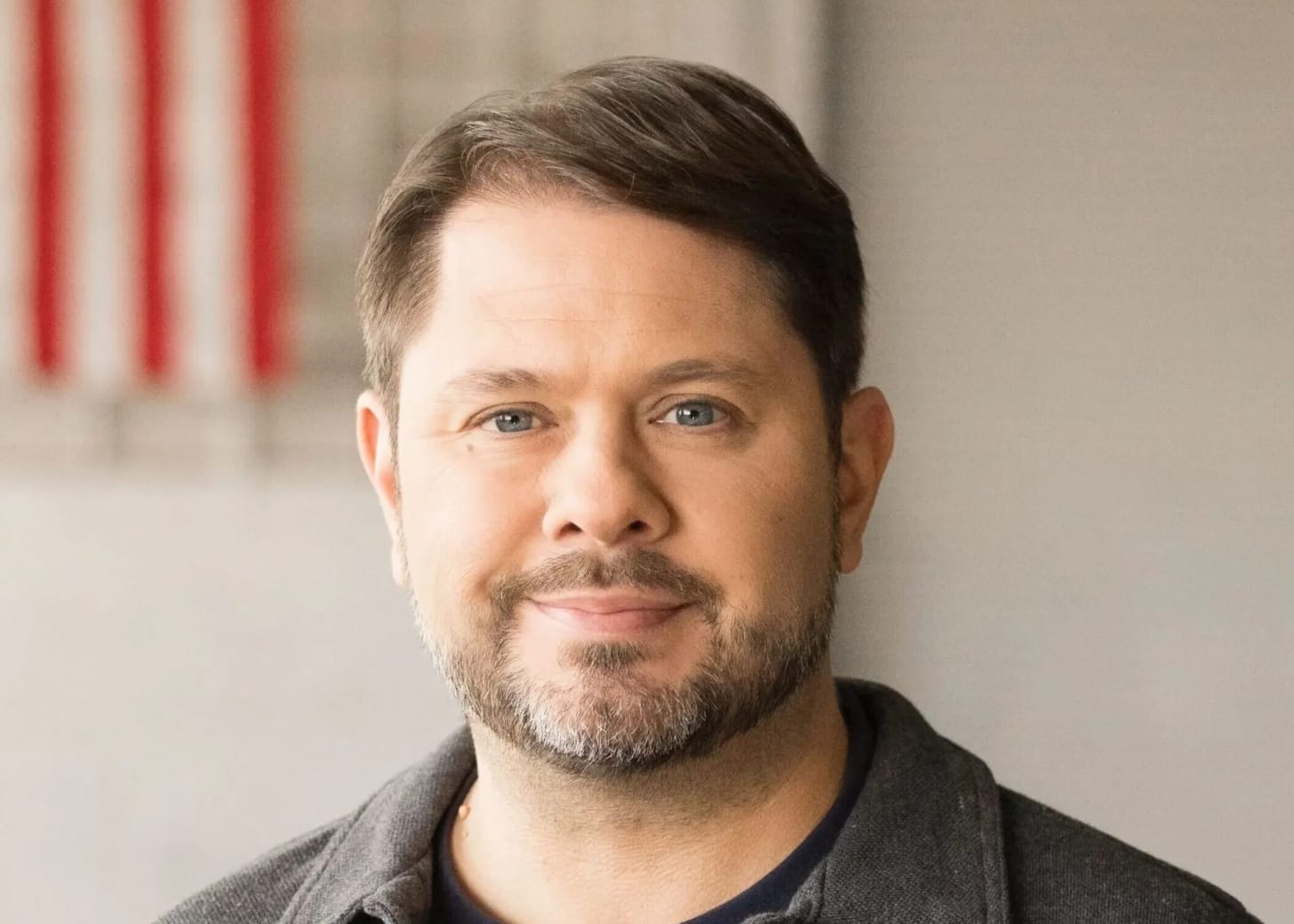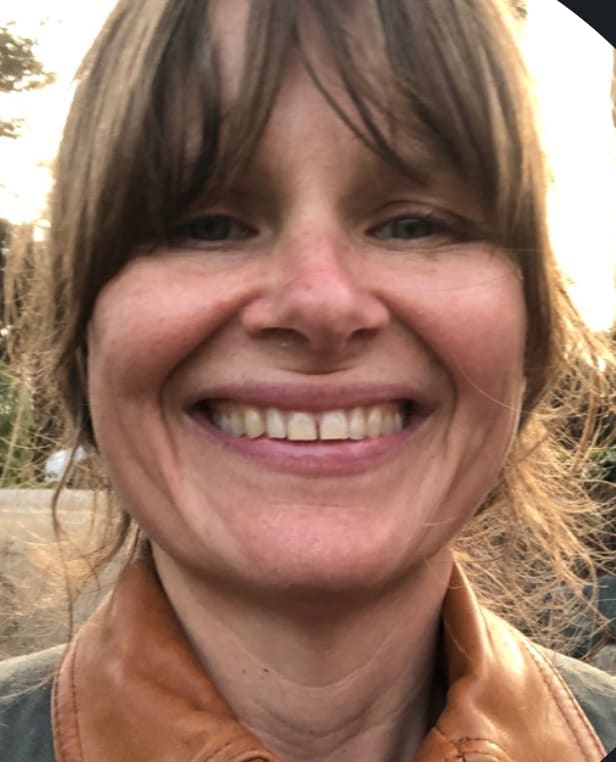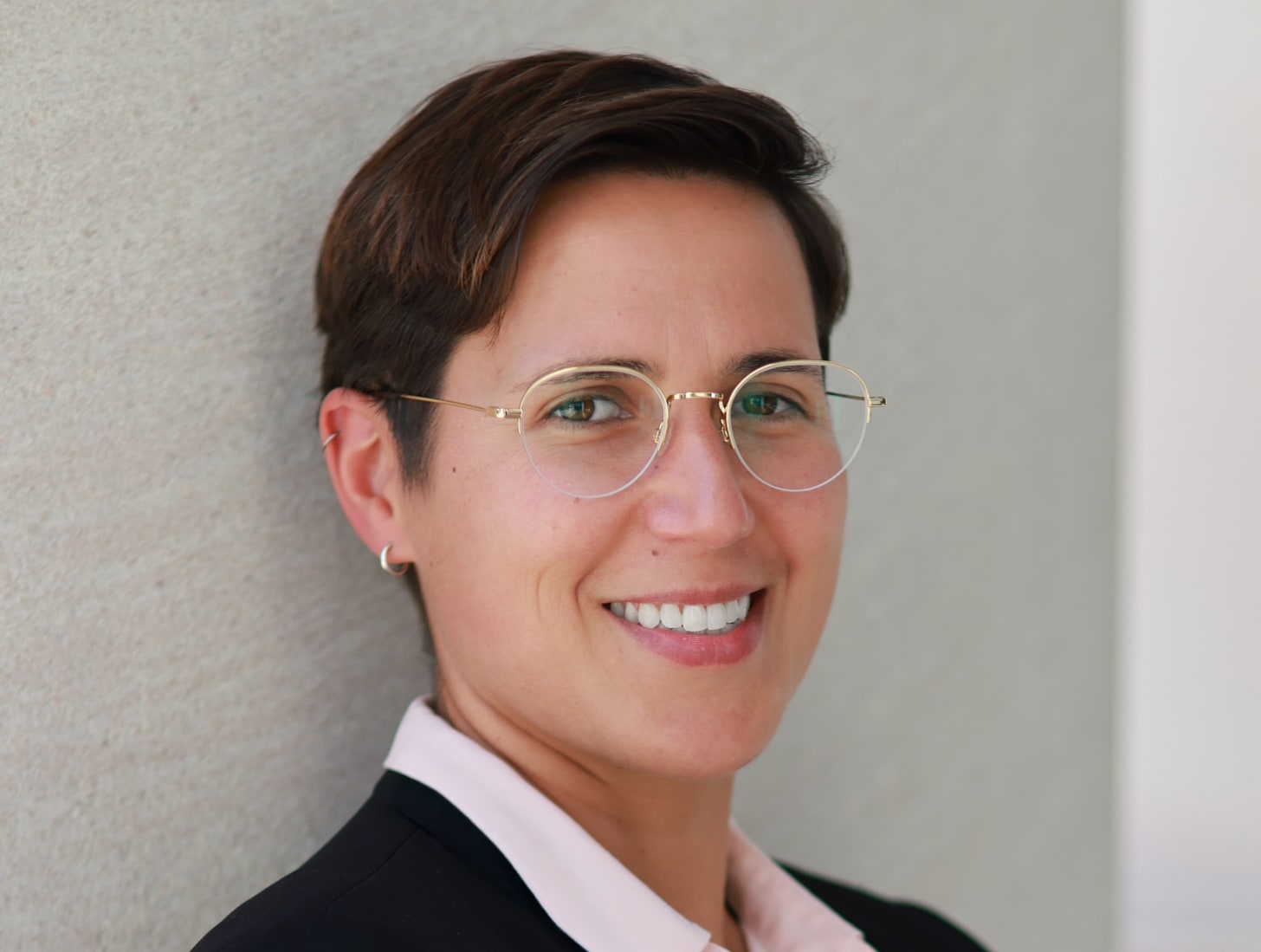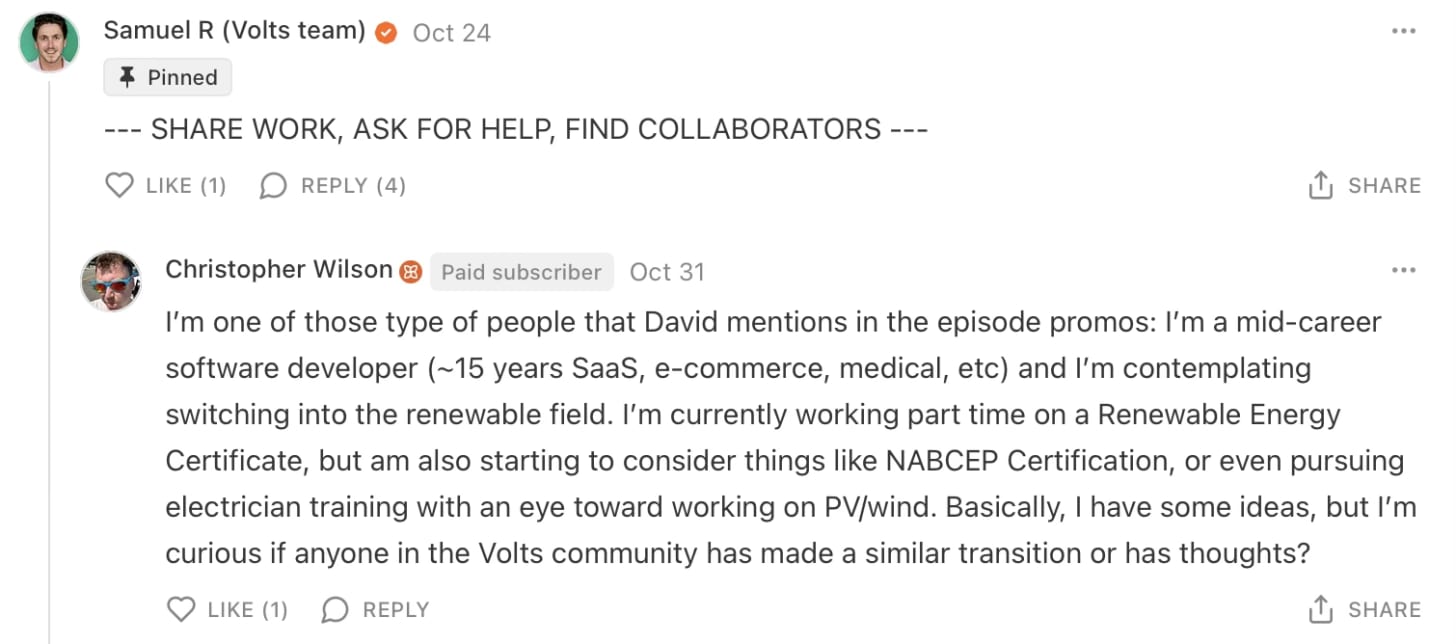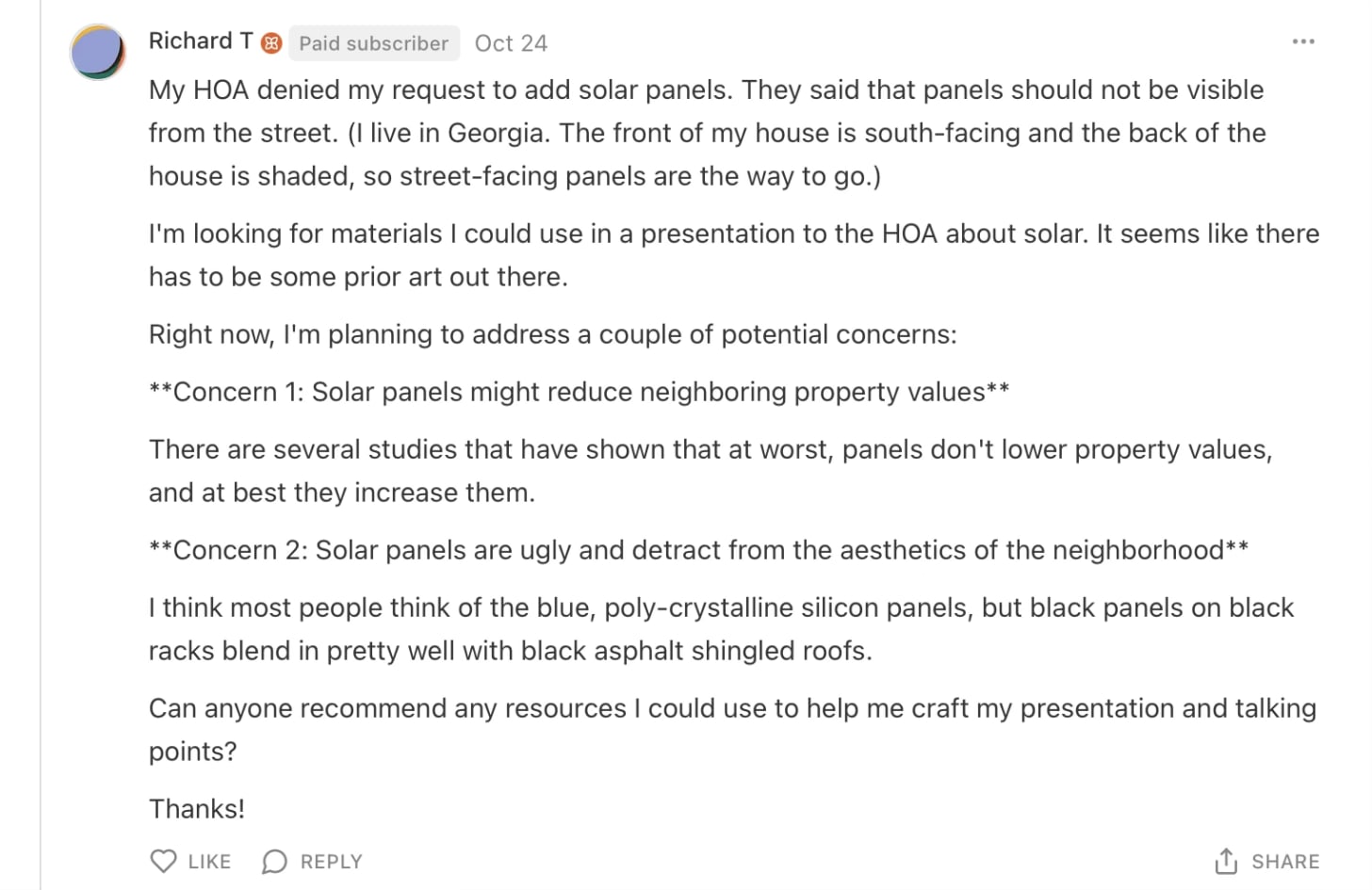Making the electricity grid work like the internet
I’In this episode, I chat with Swedish tech entrepreneur Jonas Birgersson about his radical plan to apply the architecture of the internet—packet switching, buffering, and decentralized routing—to the electricity grid. We explore how his “EnergyNet” concept uses power electronics to create galvanically separated microgrids that stop cascading failures and allow neighbors to share power directly. It is a mind-bending look at how treating electrons like data could lead to unlimited energy for a low fixed fee.
(PDF transcript)
(Active transcript)
Text transcript:
David Roberts
Okay. Hello, everyone. This is Volts for January 14, 2026, “Making the electricity grid work like the Internet.” I am your host, David Roberts.
In the late 1990s, as people found their way online and more telephone capacity was consumed by long modem sessions, there was a debate among technologists. To handle all this new traffic, should they build even bigger, smarter central switches? Or should they decentralize and create a “network of networks,” nodes that communicate laterally, via an open protocol?
In Lund, Sweden, in 1998, a tech entrepreneur named Jonas Birgersson built a proof-of-concept of that decentralized system, directly connecting a group of homes with Ethernet cable and routing information with a router, effectively creating a local area network (LAN) of the sort that is very familiar with home-internet users today. He became an evangelist for the innovation, it got taken up by the private sector, and soon Swedish households went from paying by the minute for slow modem connections to unlimited broadband for a low fixed fee of roughly $20 a month. Sweden became among the most digitally connected countries in the world and Birgersson earned the nickname “Broadband Jesus.”
Now he wants to do it again, to usher in the same kind of revolution in the electricity system that he did in telephony. His premise is simple: electricity should be treated the way we treat data. And yes, instead of paying volumetrically, based on the amount you use, you should get as much as you want for a low fixed fee.
With his company ViaEuropa, he has launched Project Energy Society, which aims to create a new electricity grid where local sharing is the norm. His technical project is called EnergyNet and, once again, he has built a proof-of-concept in Lund — a group of buildings directly sharing electricity, governed by a router.
Will he someday be referred as “Electricity Jesus”? He did once say “sharing electricity is an act of love,” so if that’s the gospel, consider me a disciple. Anyway I’m excited to talk to him about how the energynet works, how it will interact with existing grids and institutions, how fast it might grow, and the energy abundance it promises.
With no further ado, Jonas Birgersson. Welcome to Volts. Thank you for coming.
Jonas Birgersson
I’m excited to be here. Thank you very much for that lovely intro.
David Roberts
Yes, and I apologize to you and to the entire country of Sweden for my pronunciation of your last name. Before we get into details — there are lots of details here — this is a real rabbit hole I have fallen into with all this stuff. Before we get into the details, maybe I would like to have you describe the conceptual revolution involved here, because this will be, I think, your third conceptual revolution in tech — that you have lived through the same conceptual revolution over and over again. Maybe just describe what that conceptual revolution is and how you envision bringing it to electricity.
Jonas Birgersson
Thank you. This is both incredibly simple and a little tricky. The simplistic part is that once you start looking at this, it is obvious that a lot of these conditions are exactly the same as they were at the end of the 90s. There is just a lot of new tech. There is an incredible price-performance increase with these electro-tech devices. The revolution of the electrical vehicles has given us one key component — power electronics — which is getting faster and cheaper in the same way as office equipment for communication was getting faster and cheaper in the 90s.
The big difference, which makes it much easier, is that the Internet already exists. The only thing we need to do is to do an internetification of energy distribution.
David Roberts
When you say “internetification,” just talk about what that means.
Jonas Birgersson
It’s three things. One of the differences between what we had in the 90s when we started then — we already had the great American innovation of the Internet protocol. We had an open language to say, “I want to communicate.” I build a network; if you were on the same standard as me, we can have different hardware, we can have different cables, but as long as we have a common language, I can carry your traffic, you can carry my traffic. We created something we call the energy protocol instead of the Internet protocol. Instead of IP, we now have EP. We created this protocol and on the 21st of April this year, we donated that to the world. It’s zero license; anybody can use it, modify it, etc.
The beautiful thing with the Internet is that it’s completely decentralized. That was the key requirement when the Internet was created — that it wouldn’t have a central point so that it couldn’t be easily knocked out. It’s completely decentralized. I can build a network, I can have different routers in the network, and the routers can make decisions on how to send my information over my network or over your network with a common language. Completely decentralized. All of the networks that can be built and owned by different people can still collaborate over an open standard.
David Roberts
I think there are two reasons there. One is so you don’t have a single point of failure, a single point of attack, as you say. But also, it’s fair to say that the Internet has become so large that there just is no — it’s just not — you could not have a central processor, a central router doing all this. It would have to be the size of a continent.
Jonas Birgersson
Absolutely.
David Roberts
It’s not only unsafe or unsecure, it’s also just impractical. You can scale much larger when you decentralize. That’s what the Internet discovered.
Jonas Birgersson
Yes. There’s a difference in tech between decentralization, which is exactly what you said about how to not have a single point of failure, which is very critical. The other one is where you create what’s called parallelization, which means that you can have much, much, much greater throughput when you don’t create bottlenecks. Even if you have the biggest machine in the world, if every traffic packet in the world tries to get through that, it still becomes a bottleneck.
David Roberts
Decentralization in the Internet and then also in telephony. It’s funny, as I was reading your paper on this, it’s funny that each time this happens — it happened in telephony, it happened in the Internet — people have the same argument.
Jonas Birgersson
Yes.
David Roberts
All over again. There’s the same dispute. There are always people saying, “We just need bigger, more powerful centralized equipment.” And there are always people saying, “No, decentralization is the way to go.” Over and over again, the decentralization people have won that argument.
Jonas Birgersson
Exactly. One of the key things is this: when you create something in very, very large volumes, even something incredibly complex, and in the start, when you make the first few of them, it’s incredibly expensive, but it can become — and this is the example with everybody today having a supercomputer in their pocket in their smartphone. Just 75 years ago, the most common phone in Sweden, the iPhone 12, has the power that is 68,000 times more powerful than the world’s first mainframe computer. Nobody thinks about it.
David Roberts
This is the power of learning curves, which we have talked about many times on this pod. You make the same small modular thing over and over and over again. It gets cheaper. It is a law of nature. This is the revolution you are trying to bring to electricity now — getting away from central bottlenecks into massively parallel architecture, roughly along the same lines the Internet did.
Jonas Birgersson
Absolutely. Just think about it — it’s exactly the paradox that you see repeating over and over again. Few large, expensive versus many small, cheap in parallel, coordinated with software, an open language. Just understand how frustrated we were. In 1998, you could go into computer stores all around the world. On one shelf you had telecommunication devices. On the other side of that shelf you had office equipment for data communication. It could be in the same store, but you could see the price-performance difference. If you bought an ISDN modem — the old phone stuff —
David Roberts
Yeah.
Jonas Birgersson
Then you got 0.064 megabits. But if you took the other shelf, you got 10 megabits symmetric and it cost very little. The performance difference was 300 times. The only thing we did in 98 was say, “We believe that we can use the datacom stuff in communications. We can put those in buildings where people live instead of just having...” This is exactly the same thing that we’re seeing with the power electronics sitting in the chargers and in the electrical vehicles. Why don’t we use those things to build a new electrical distribution network?
David Roberts
That’s the broad conceptual piece — decentralization, massive parallelization of the style that has already swept through the Internet and telephony. How do we do this in electricity? I’ve been debating how to walk through this, but I found this paragraph in your paper that I think gets almost at all. We’re just going to milk this paragraph for most of the pod.
Let me read this and then we’ll walk through it step by step. It says: “Starting from a clean slate — in other words, if we didn’t already have an electricity system, if we were starting fresh — a modern system would be local first and digitally coordinated: microgrids with power electronics frontiers, software-defined energy flows, open protocols, local buffering and storage, and policy-based interconnection between domains.”
Now, I’m guessing for most listeners, a lot of that sounded like gobbledygook, but there is an immense amount of information packed into that paragraph. I want to take these one by one. First, I think people understand what microgrids are. When you say “power electronics frontiers,” the term that keeps coming up here is “galvanic separation.” Can you just explain — two microgrids that are galvanically separated — what does galvanic separation mean?
Jonas Birgersson
Yes. For those people that like nerd jokes — all three of them — the key thing we’re doing here is that typically the classical microgrid is separated from the traditional grid, like an island.
David Roberts
Islanding — that’s a familiar term I think a lot of people listening will understand. When you have a microgrid, when you can island, that means you just flick a switch and you become physically separated —
Jonas Birgersson
Yes.
David Roberts
— from the larger grid and you’re operating autonomously. Is that what you’re referring to here?
Jonas Birgersson
Yes. The galvanic separation is the electrical description of that. You just became an island.
David Roberts
Right.
Jonas Birgersson
The key thing here is that now it’s clever software. We can decide — this is the nerd joke — it is Schrödinger’s microgrid. It’s both on and off the traditional grid. The key thing is that by using this as a firewall, you can now decide when you want to be part of the traditional grid and when you want to be an island.
David Roberts
The contrast here is the traditional grid — the conventional grid — is all hooked together, which makes it one big loop, which means if you get a fault or an accident somewhere, it can trip and go through the entire system, take the entire system down. Whereas if your grid is composed of these microgrids that are all separated, then any fault doesn’t get farther than the border of the microgrid where it happened.
Jonas Birgersson
Exactly.
David Roberts
Confine the fault.
Jonas Birgersson
Exactly. It’s even better. The technical term for people in the network world is “cascading.” It’s an avalanche. It breaks through one dam, but then it has the content of one dam plus one dam. When that gets going, suddenly you have 60 million people in Spain saying, “Why don’t I have electricity?” The thing we’re doing is even more clever because in the Internet world, which is the big guide for how we can do this in super max scale and decentralized and super safe and cheap, each port in the router is galvanically separated until the open standard software says, “Now it’s time to do a nice little energy transfer.”
Everything — if you have photovoltaics, that’s on one port, and if there’s a fault, it can’t get past that port. If you have storage, it can’t get past that port. It’s in the building, it’s in your microgrid, it’s between microgrids. Of course, all of the ports going up to the traditional grid, because we have to be careful with the traditional grid because of the cascading. But this means, because we can never create a cascade, suddenly we can have an unlimited amount of electro tech invested locally without any technical negative effect on the traditional grid.
David Roberts
The vision here in the long term is a grid that is composed of microgrids — like Legos. Except, as I was thinking about, the Lego analogy breaks down a little bit, because you can have a microgrid that is embedded in a larger microgrid,
Jonas Birgersson
Yes.
David Roberts
Which is itself embedded in a larger microgrid. As you say, even within — if you take the microgrid that’s just my house, if my photovoltaic circuit port is galvanically separated from my water heater port, in a sense, those are both even tinier microgrids. It’s microgrids all the way down — it’s nested microgrids.
Jonas Birgersson
Yes. If you think about it, this is exactly how your Internet at home works today. You have a box from your provider, and on one side of that you have the whole Internet, and on the other side you have local addresses. Even if the Internet goes down, you can still print on your printer. You can reach another computer in your home. You have your own little — this is called the local area network — and then you have a wide area network. This way of building it in these modular components is one of the things that makes Internet super robust and at the same time, incredibly scalable.
David Roberts
Scalable and secure. This is the part that makes it so secure — you are confining any fault or any problem. There are gateways that can be shut to confine anything. Everything is separated from everything else. That is the first piece. Microgrids with power electronics frontiers just means they are not physically connected to the other microgrids. There is a connection that can go on and off.
Jonas Birgersson
Exactly. One key thing that creates — this is us being network nerds — is that instead of having only the old grid, where everything is cascading or islanded, we can now have what we call a smart microgrid because it can be both on and off, and it can work inside your grid, but it can also work with other smart grids. If you need electricity, you can get it from your resources or from neighboring resources or from a neighboring smart grid. In the last instance, you bother the old traditional grid for it.
David Roberts
You go up levels. If you can be self-sufficient at the household level, you do it. If you need more than that, you get it from neighbors. If you need more than that, you get it from the next village over. It is only after you have exhausted that local self-sufficiency that you turn to the traditional transmission grid for bulk power. You start at the bottom — rather than starting at the top.
The second piece is software-defined energy flows. My question is, as opposed to what? How does it work today and how would this be different?
Jonas Birgersson
This is the true shocker. If you think about how an airplane looked when the grid architecture that everybody’s using today was designed, you would see the Wright brothers’ plane and you wouldn’t want to fly in that. It’s weird for us as network folks to look at the old grid, because the old grid — you have to remember it’s not only that it’s this cascading thing, everybody’s connected to everything. It is also, in its core architecture, analog.
David Roberts
Yes. I am constantly making this point, Jonas. I swear I say it every pod I make. People are so accustomed to digital technology. In their imaginations, they think the grid is like that. They think the grid is digital too, but it is very old-fashioned. It is physical and analog in a way that I think surprises people.
Jonas Birgersson
Yes. Another thing, if you think about it, you have all of these rooms where you see control rooms of a big grid company. The only thing they can do in the traditional electrical grid, which is 99% of the components they have out there, is turn things on or off. That’s it.
David Roberts
Yeah.
Jonas Birgersson
If you then back it up, comparing that to digital control, it means that — the old grid, if you have power at your home, you either have it or you don’t have it. That could be for all of California or for all of New York. Here we can say, “We only have 12% power, so we want that power to be transported to that critical function and that critical function.” No jacuzzis, but we’re going to run this light or open this door.
David Roberts
The refrigerator.
Jonas Birgersson
Exactly. We could say the refrigerator — you only need to get a power boost every 30 minutes or depending on climate. In Sweden, we can just open the door because we live in a refrigerator.
David Roberts
You’re talking about software that is embedded at the household level, at the building level. Each individual domain has their software, so when energy comes in, you can send it one place or another based on software rules, which, again, I bet 99 out of 100 people, if you just pulled them off the streets of America, would think that you could already do that. But that is new.
Jonas Birgersson
You get excited about this because there are many different things that you can do the moment you get it to be digital. There are a couple of things that make the digital even better. One of the things is that you have a common language so that you have your port inside the home, but your neighbor has bought different boxes, completely different vendors. As long as they still have the same language — Wi-Fi — it means that we can now help each other out. But I’m not locked into a vendor or an ecosystem.
David Roberts
Not only is the software coordinating the energy within my house, it can coordinate with my neighbors so that collectively we have the best distribution of energy. That again gets to this third piece — the open protocol. The reason this works is that there is an open protocol that all these different vendors, different boxes, different equipment, they’re all going to communicate with the same protocol so they can all do this with one another. The open protocol is a huge piece, which, as you say, you’ve been working on. There’s a body, an organization.
Jonas Birgersson
Yes. There is a nonprofit organization called the EnergyNet Task Force. It is simplistic, but that is what you have to do when you work with infrastructure and open standards. It is simple, but simple is sometimes hard to do. You get the best nerdy folks from different industries, different backgrounds. You do all of this concentrated work and you give it away for free, and nobody will ever know who you are.
David Roberts
But your work will live forever and will be in literally everyone s home.
Jonas Birgersson
Exactly. One key aspect with the language — when we say the energy protocol, so far, you and I have only talked about electricity, but for us, it is really thought out that it is really an energy protocol, because you can also do exactly the same language saying, “I need energy of electrical kind, but I could also be needing heat, or maybe I want to get rid of heat.” The same language can control also if I request or I want to get rid of energy in the form of electricity or thermal energy.
David Roberts
You could do a heat network on similar principles, working roughly the same way.
Jonas Birgersson
Yes. In Sweden, energy — electricity and heat — is very interchangeable because we have a cold country. In the rest of the world, the peak utilization is when it is very hot.
David Roberts
What’s required for that protocol to gain the ubiquity that the Internet protocol gained? Is it just — you just need big private companies to sign on? What’s required for that to become the standard? Is that underway?
Jonas Birgersson
We think so. The key thing — a fourth part that we didn’t put in that paragraph. You have the router, you have the language. The other thing is that there is a prerequisite that we now have in Europe that people don’t know about. Because of the terrible Russian attack on Ukraine, Brussels got its act together and shifted up a couple of gears. They did a radical, incredible policy, allowing for the first time in more than 100 years that in all of the EU countries, we can now build parallel electrical grids.
David Roberts
This is something we’re going to return to, Jonas, because this is the piece — one of the questions that is going to be on everybody’s mind as we go through this is, “How can we bring this to the US?” That right there is the big barrier. We’re going to come back to that. You are allowed legally now to hook households directly up with one another so that this can work.
The fourth piece in this paragraph, which I was really intrigued by, is local buffering/storage. As you think about it, conceptually, this net, this energy net that you’re creating, the energy routers — we should just say, when you say an energy router, you’re talking about a glorified smart meter, an even smarter smart meter. But it’s going to be located on the side of the house. It’s a big computer.
Jonas Birgersson
Yeah. Think about it as your communication gateway. You’re going to have a couple of ports. This is where I want to use all of my electricity. Of course, it can output normal electricity, but when it’s communicating with generation — photovoltaics — it can use DC natively. You have these ports. You can control energy where it comes in and where you want it to come out. The magic happens inside your home, but the real magic happens when one of the ports is connected to another building and you get to the real Internet when it’s connected to two buildings, because now I can make a choice —
David Roberts
Then you have a network —
Jonas Birgersson
Then you have a redundant network.
David Roberts
Local buffering and storage. As I think about this net you’re creating, these energy routers and batteries become grid infrastructure. They replace transformers and substations. They become the new infrastructure of EnergyNet. One of the things you note several times is that this enables near real-time versus real-time operations.
I think people listening understand that today’s grid, absent batteries, absent the ability to store energy, which has been most of the grid’s history, demand and supply have to sync up in real time. You produce the power, it has to be consumed instantly, more or less, which is an enormous and truly mind-boggling coordination problem. It’s amazing it works at all.
Jonas Birgersson
Exactly. It’s a terrible architecture.
David Roberts
Yeah, it is. I’ve often thought that. I always have two thoughts. One, it’s amazing that that works. Two, I can’t believe we’re still doing that.
Jonas Birgersson
Exactly.
David Roberts
Now we have batteries, which enable you to buffer. Buffering — anyone who is familiar with the Internet is very familiar with the role of buffering on the Internet. Batteries are playing the same role in the energy net. Say a little bit about what are the advantages you can get from moving from this real-time coordination to “near real-time,” meaning you have a lot of batteries out there that give you a little bit of wiggle room.
Jonas Birgersson
Exactly. A little wiggle room takes you an incredible distance. I knew nothing about electricity when I started with this a couple of years ago, but I’m a nerd. I read up quick and we have really good technical people around us. The key thing is that I know a little bit about computer networks. Once you can have buffers, it’s not a marginal change. It’s the whole ball game. It’s a completely different world.
David Roberts
This is why I’m always preaching about batteries. Batteries, batteries, batteries.
Jonas Birgersson
Exactly. Here’s the key thing — everybody that listens to this will have seen firsthand today the effect of buffering. This is what happens anytime you get on a stream of anything. If you go to Netflix or something, you click on it. What happens is that the computer immediately downloads a 10-second buffer.
David Roberts
Right.
Jonas Birgersson
If the network is having some issues or is unstable or you go through a tunnel, if you’re mobile or whatever, you have this little wiggle room and it makes all the difference.
David Roberts
It would be crazy to try to build a system where Netflix was literally supplying you as you’re watching it, and there was no buffer. People can just imagine how incredibly difficult and how much more equipment you would need to pull that off. A little bit of buffering, as you say, frees up an enormous amount of wiggle room.
Jonas Birgersson
Absolutely. There are some really interesting calculations done by some of our friends in the academic world where you can just say that — typically a Swedish household today would have a 16-amp connection. If you just have 1 kilowatt-hour of storage accessible, you can take that down to 1 amp.
Wild.
Exactly. This is just one very simple, very easy metric. It shows that it has an incredible impact on the network. If you start thinking about it, it is much easier if you give yourself a little time to think, because this is exactly what we are doing.
Instead of having to coordinate everything at once — if somebody throws you two balls at the same time, it becomes hard. If somebody throws you 30 balls at a time, it is impossible and you cannot deal with it. This creates the bottleneck.
In the old world, they say, “No, you can’t also be allowed to put energy into the network. You can only use energy from the network because we can’t handle that. Sometimes balls are coming from you or to us.” Here it’s, “No, because they’re put in a pile. I don’t need to address all of these flying balls at the same time because I have a little net.” They get caught in the net and I pick them up one at a time and have a look at them. Of course, that is much more simplistic, but also much more robust.
David Roberts
That is the magic of batteries. This is playing out in the US. There is a lot of concern about upgrading electrical appliances. You have to upgrade the electrical service too, which is often very expensive. Of course, you can get around that if you have batteries. Batteries get you around that just by doing this buffer thing, as you say. That is a key piece of this.
The fifth piece in this paragraph: policy-based interconnection between domains. I think when you say “domain” here, you’re talking about these microgrids. My photovoltaic port is one domain that’s embedded in my house microgrid, which is another domain, which is embedded in my neighborhood microgrid, which is another domain. Each domain has this single point of connection, this energy router that solves all the complexity beneath it and then serves upwards.
When you say when these domains connect to one another — say my little town has a microgrid and we are going to connect our little microgrid to the next town over, their microgrid — what does policy-based interconnection mean?
Jonas Birgersson
Yes. For the people that are into network things, what it means is — I’ll take the advanced person and then I’ll come back and explain it very easily. The advanced thing: it means that the routing, if your house is connected to neighbor A and neighbor B, it means that I need electricity, but I can now choose if I want to get everything from neighbor A or from neighbor B. This is routing where you choose where I should get my electricity from. In the old grid you don’t have that choice. You have one connection. If it doesn’t work, it’s your problem.
But this means that I can now start making these intelligent decisions. I can say, “I want to get it from neighbor A,” or “I can get it from neighbor B,” or “I can get 50/50, I can get from both, because if it’s disconnected, at least I’ll have half.” You can start making these decisions. The policy is about what you want that is above the technical level. For example, maybe I’m very good friends with neighbor A, so I’ll decide higher up that I’d love to share energy with those folks and we are good friends, so we don’t charge each other for that.
But neighbor B — I don’t like that person. We can have collaboration, but whatever they use from my side, they will pay for it and vice versa. Suddenly these are different policies, but you also have different policies saying, “I’m going to take care of my things,” etc. The city can say, because we helped establish the microgrid, “If there’s an emergency, then we can have a priority saying that we would like to be able to use your car battery to run the hospital,” or these kinds of things.
The multi-domain policy makes these things — it sounds very complex, but it makes them incredibly easy to do once you have human wishes that could be very simply coded.
David Roberts
Once you have the computer and the language.
Jonas Birgersson
Exactly.
David Roberts
And the protocol, then you can start coming up with these rules. A rule would be, “Take power from neighbor A, unless neighbor A is below X battery level, in which case take power from neighbor B.” Anyone who has done any programming is familiar — these are just programming rules. If the village microgrid is connecting to my household microgrid, as you say, one of the rules could be, “If there is a crisis on the larger grid, we can shut off your Jacuzzi.”
Jonas Birgersson
Exactly.
David Roberts
That’s another policy. The energy is being shared not based on physics alone, but based on people’s goals and desires and values, etc. That’s true between every domain — the domains in my house, the domain of my house connecting to my neighborhood domain, connecting to the next neighborhood domain, etc. All of these connections are rule based.
Jonas Birgersson
Yes. It’s important, because as you said, many people might think, “That’s how it works today.” It’s not, because you don’t have any way of controlling today where the electricity goes. For example, let’s say your town is connected with this microgrid. You have your own little microgrid in all the buildings, but then you have a microgrid in the town.
Let’s say you’re connected now with two points — it could be only two points — to the traditional overlying electrical network. For the first time in 125 years, we can now give them a simple software language or API where they say, “Dear network provider, where do you want the electricity to be collected from? Do you want us to take 50/50 from power station A or power station B? Or do you want 90/10? Or you’re going to do a service on that one?”
They can do whatever they want. We can also communicate to them because of our storage level. We can come up with an agreement saying, “You can turn us off for eight hours because we will not suffer because that is our buffer.”
David Roberts
The implication of this — all these embedded domains all the way up — is that every connection is a piece of security. Every connection is a piece where cascading can stop. At the limit, if you build this from the ground up, if you build a grid like this, this is the sort of glorious future where literally everything that uses electricity becomes a resource that can be used by the grid in which it is contained for safety and security purposes. This whole notion of distributed energy resources becomes almost a tautology. Everything electric is a resource in a grid like this. Almost by definition.
Jonas Birgersson
Yes. Even if you think about — it becomes a little nerdy again — it also supports multiple topologies that can shift over time. What does that mean? Today most people are connected to a transformer station. There’s one line going from that to your building and maybe it passes a few buildings. That’s called a star topology. You could have a ring topology so that I’m connected not only to the transformer, but I’m connected to my neighbor A and neighbor B. In the end that becomes a ring. In an old network that’s a really bad idea because that’s a short circuit.
David Roberts
Right.
Jonas Birgersson
But here it isn’t. As we said, with software negotiations — because EnergyNet is a very polite language — there’s no electrical distribution until first I ask permission: “I would like to send some electricity.”
David Roberts
It’s consent-based.
Jonas Birgersson
Exactly. The first message that was sent over Energy Protocol, by the way, was “Hello, dear,” because it is polite.
David Roberts
Hilarious. One of the advantages of this, as you’re saying, is that it is composed of these small modular pieces, these Legos that can be disassembled and reassembled in a million different ways — it’s very adaptable over time. You can flow and adapt to circumstances over time.
This is one of the advantages that I really wanted to pull out. Something that you hit several times is, number one, you can grow incrementally. You can “pay as you grow,” is that what you call it? You’re not making big risky bets on big risky power plants and big risky transmission lines. You’re building in very small increments and you’re building in parallel. All these grids are building at once in massively parallel.
The key thing that I wanted to highlight is all of this can be done by the private sector. All of this is profitable and useful and does not require — the main thing about the policy-based interconnection that I meant to mention when we were talking about it is everybody listening to this pod is very familiar at this point with the interconnection problem in the US — meaning everybody who wants to connect to the grid has to get in a line and wait for the utility’s permission, which is slowing everything down fatally here in the US. But if you have these software policy-based interconnection rules, if you build something, you just hook it up and the software handles the routing, etc. for you. You don’t have to get anyone’s permission.
Jonas Birgersson
Exactly.
David Roberts
You can just hook up. People can just build stuff and hook it up without waiting on the utility. I think that is such a huge thing. It is private sector, you do not need any giant infusions of cash, of public money. People are just going to build the Legos on their own. You are just getting away from the need for waiting on large institutions. All this can just happen on its own via the private sector.
Jonas Birgersson
Yes, that’s correct. The key thing here is that it has happened before. It sounds way too good to be true. The rolling out of the digital mobile phone grids — the GSM, the 3G, the 5G, whatever G — and the fiber networks, they were by and large, even in Europe where the state likes to do things, 80% of the fiber optical networks in Europe were paid for by the market.
This is also getting away from this notion that, “No, this is so complex, it has to be one socialized structure, one rate payer.” Theyre correct, that is how the old architecture forces the old grid to behave. But it was the same thing with the phone system. The wild fact is that next year — 2026, or maybe this year, 2026, when you listen to this — the Swedish fixed-line phone system will have been completely dismantled.
David Roberts
This brings me — we have described this system now pretty well and I have a couple of questions about it. This gets exactly to my first one, which is: in the long-term vision, do you imagine this ground-up, bottom-up, networked, highly distributed system eventually replacing the traditional grid? In other words, in the long term, what is the role of long-distance transmission and large-scale power plants in the grid of the future? Is that going to be similar to the Swedish fixed phone system in that it eventually just withers and disappears, or do you think those big pieces are going to have a persistent role forever?
Jonas Birgersson
There are a couple of things here and this is going to be very hard for people to imagine, but believe me, because I was there, it was very hard for people to imagine that the Swedish phone system would be replaced in its entirety less than 30 years after we started building the parallel fiber optical grid. What will happen, I believe, is that you will have these ground-up — what you build locally and you connect network to network — but then it will be met by another revolution. This is also so weird that this also comes from Sweden because the last time somebody did something meaningful to the old grid was in 1950 at the Royal Institute of Technology in Stockholm where they invented high-voltage DC.
This is one of the key reasons why China — why hasn’t their grid collapsed when they put all of the solar and storage out there? Because they are building their highest level of distribution with new technology. I think that you will see high voltage DC lines meet these local solutions over time because, to be drastic about it, I have nothing against alternating current, it is just with power electronics, you have no real advantage anymore for it, not in distribution at least.
David Roberts
You think the big grid will persist, it will continue on? These debates in some sense about centralization versus distribution and energy are very old. I saw you had a picture with Amory Lovins. This goes way back. I think a lot of people are skeptical. I think a lot of people can imagine a village full of houses doing this, but when they start to think about cities — big dense cities or big industrial uses like making steel, etc. — it is very difficult for people to imagine all these tiny little bits adding up to something big enough for that.
Do you think big power plants and big transmission lines are going to stay around to do that bulk work? Or do you think eventually the bottom-up grid can do everything?
Jonas Birgersson
For sure, I think it can do everything. But there will be a transition phase because what you can do — this is a really wild — there are a couple of things I want to unpack there. One is that we can talk a little bit about — people underestimate power electronics. They think that it’s a toy. But this is saying, “The personal computer or having your own supercomputer in your watch or your phone, that’s never going to happen.”
David Roberts
People did say that.
Jonas Birgersson
They did say that, and not long ago. The other key thing here is that you can repurpose the same copper lines. You can use the same copper lines with power electronics so you don’t have to rebuild all of the lines. You can run the lines with this much smarter new technology to get energy security and abundance and these things.
David Roberts
Grid-enhancing technologies.
Jonas Birgersson
Yes. The important thing is that what you do, you’re shifting completely the architecture, but you can reuse the physical lines and cables. In Europe, this is very interesting for us because Europe believes in something that sounds American, but it’s called competition. We have in Europe something called infrastructure-based competition. It’s called infrastructure overbuild — which means that you could have multiple people build fiber optical cables in the same street.
David Roberts
Interesting. So that’s not a monopoly.
Jonas Birgersson
Exactly. That has shown that our prices for broadband connection in Sweden are about a third compared to the US.
David Roberts
Wild.
Jonas Birgersson
We believe that you could see the same thing here. When you get into that thing, if you are the incumbent, you were building your network when you had monopoly protection and then you got deregulated. We now have a little electricity. What happens is that the European Union then put rules so that if you own those cables, you have to lease them out to any competitor at a fixed cost that the regulator sets every year.
Maybe the line that’s providing today AC with the cascade problem to your home, maybe that same line can be used by an entrepreneurial company creating a new network with microgrids so you don’t need to re-dig everything. You could lease those copper cables.
David Roberts
Yeah. I guess one of the things I’m getting at — this whole model is based on local generation, local storage, local sharing. If you build a steel plant, you’re going to use up the local generation of a very wide swath of geography. At the very least, it seems as you’re building this thing, if you take homes off that conventional electric grid, if they’re handling themselves, if nothing else, you freed up that traditional grid to more exclusively serve large loads, large industrial loads and stuff like that. At the very least you’re taking pressure off.
Jonas Birgersson
Exactly. Here’s the interesting thing. The growth in need for electricity from the traditional sources, for traditional needs, is pretty flat. That’s not expanding a lot, which is interesting. As you said, what happens now if you take a big load off the traditional grid, which is where we start, of course, is housing. But housing in Sweden is the biggest consumer of electricity from the grid today. It’s not a marginal sector. In Europe, in the best countries from the grid perspective, it’s still at least the third largest user. It’s significant amounts of electricity that we can take off the traditional grid and then the traditional grid can be enhanced and they can do their things.
In the end it’s going to come down to the cost because it’s not about where I can get the energy from, it’s at what cost and energy security can I provide my business. This is the thing with the Internet. The difference between the first ISDN modem and the office equipment, it was 300 times better performance. But then when the ISDN, they were so proud, they upgraded to 1028 and then the problem was that the other guys upgraded 10 times, so the gap was increasing.
David Roberts
At the very least, if you take housing off the traditional grid, and the traditional grid can just be used for other things, that is going to relieve your need to build more traditional grid — more big, expensive power lines and stuff. You’ll be freeing up a lot of capacity. Another question about safety, security.
You mentioned Spain. I did a pod on this a while back about how the current grid has these spinning masses — these giant spinning masses that are providing a little of that buffering and security on the traditional grid, keeping frequency and voltage within certain limits, providing safety. The grid you’re describing obviously has no large spinning masses. What about security? What about holding voltage and frequency within those ranges? Is that all going to be done by the power electronics? Are you concerned about that at all?
Jonas Birgersson
This is the thing. People try to take these technical solutions from the end of the 1800s, and they want to take the folly of them and turn that into, “Wow, it is very big, mechanical, manly things that rotate at a consistent rate. Look at the tonnage of that thing. It has to be safe.”
David Roberts
I know. Look how big it is.
Jonas Birgersson
Exactly. It’s so big. Look at the Titanic. It has to be very good. This is why we talk much about the galvanic separation. For people that don’t follow the nerd stuff, the frequency is set by the amount of energy that goes in and the amount of energy that goes out at the same time interval in the old analog grid. That’s a terrible, incredibly ineffective way. It was beautiful. It was genius before we had electronics and computers, but guess what? We have a lot of those. When we set up this port, the port delivers exactly the frequency that we ask it to deliver. Nothing else, nothing more.
We can now say that all of your — let’s go back to your village. Your village is having this grid. It’s a smart retrograde. It is now connected by two points — the traditional grid. You can give them — not only can you say, “We can stand on our own two feet, let’s say, for eight hours,” they can turn you off. It doesn’t matter. They can do other things. Let’s say they have a problem with the frequency in the old analog grid, they can now ask you guys for the port to deliver over frequency or under frequency to help them, to balance —
David Roberts
And stabilize it —
Jonas Birgersson
And nothing is rotating. How is it possible? This is technology. It’s magic, but it works.
David Roberts
Speaking of analog, trying to describe to people — the entire grid rests on these giant machines that are literally spinning, and if they stop spinning we’re all screwed — people don’t believe you.
Jonas Birgersson
No, people don’t understand how the grid works, of course. The other thing is that the old analog grid, it was an incredible masterpiece by the geniuses of their generation, exactly like the phone grid. They were architected about the same time, the 1800s. The key thing was it is already breaking down. Not because of solar panels — I’m very tired of that notion — but because the industry does not want to be part of a beautiful analog shared frequency.
What happened is when you start doing something in a big industry in southern Sweden, in the old world, every machine in southern Sweden started rotating a little bit slower. Big surprise when Volvo wants to build precision machinery, they don’t want their machines to digitally — they put digital converters between so that they are not on the consumption side, they’re not analog anymore. This increases the problem with keeping the frequencies because the frequency is not analog, is smoothed out by the difference in rotational things. If you’re not a nerd, forget about that. The electronics make frequency a non-problem. If you use DC, you don’t have frequency problems to begin with. It’s very easy.
Here’s the other cool thing. Everybody that listens to this pod will have used not only DC, they will have used open standards and they will have used variable power output on the same port because they will have used USB today. That is what USB does. If you connect the USB-C port — the stuff that doesn’t have a wrong side — you connect that and you can get either 5 watts or you can get up to 240 watts.
If you start thinking about that, that’s wild. I connected this thing and I have the weakest type of device. How does this not burn up? How do I make sure that it doesn’t get too much energy? Because it first asks and says, “Hey, what type of device are you? What’s your need today? You want 10 watts? Here is 10 watts. Have a good time.” Everybody uses it and it’s wild. It’s an infrastructure where you have both communication and electrical distribution and you have open standards. You could say we’re doing that — but on a city scale and then multi-city scale.
David Roberts
Right.
Jonas Birgersson
It’s so obvious.
David Roberts
Yes, I think so too. This question comes up a lot, but I agree with you. Computers, open protocols, software are a better, not just an adequate, safety substitution for spinning masses. I think they are going to be better over the long term.
Jonas Birgersson
Of course they’re going to be better. It’s so obvious. The reason why the American military paid ARPANET was that they wanted to get rid of the problem with security. The Internet is not only cheaper and faster, it’s also super resilient. This is the thing with energy security and energy independence. Of course it’s good if you can make sure that energy goes to where it’s needed. You could say that my packets are labeled, “I only want to consume green packets, but if there’s a crisis I’ll take any energy packets I want,” because of the open language.
David Roberts
You built in Lund a little tiny grid like this. You built a little proof of concept. How many buildings are involved in your little microgrid?
Jonas Birgersson
The first technical proof of concept that we built was two buildings, two different real estate owners. We call them, of course, completely value-neutral freedom cables. When we built this parallel grid, they’re connected, they have the routers and they’re exchanging electricity. Here’s the key thing — we don’t need to have a cost for electrical distribution, which is just obvious but so that people don’t miss that. When you build the freedom cables you get three major freedoms. You can set whatever technology you want to use. We can use DC.
You can set whatever cost, including zero. If you’ve co-owned it with a few neighbors, you don’t have to charge for this region. If you would use the traditional grid in Sweden, saying, “I want to connect to my neighbor and it’s only 150 meters,” that’s great, we’re going to give you 150 meters, but then we include 3,000 kilometers because you can’t use a little of the grid, you have to pay for the whole thing. The last freedom, which is also important, is that you can now set whatever price you want, including zero. Depending on if you like neighbor A, but you don’t like neighbor B, you can set different prices on the packets depending on who consumes them.
David Roberts
This will be different in Sweden and the US, obviously. As this grows, as your energy net grows, it is growing alongside the existing grid. I’m curious, do you think that can just go on and they are not going to conflict at all? What is going to be the interaction of this growing energy net with the existing grid and existing grid institutions? It’s baffling to me — one of the craziest things about reading your report is that the utility in Sweden seems fine with this. They are supportive. When I think about anyone trying to do this in the US, all I can imagine is the utility lawyers coming down on their head. What is the interaction? Is the utility not threatened in any way by this? How did you talk them into this?
Jonas Birgersson
There are a couple of things there. Let’s come back also to how we can get this going in the US because we have some interesting ideas on that, but just on the Swedish side, first of all, they can’t block it, which always helps cooperation.
David Roberts
Because of this Brussels law, you are now allowed to connect two residences directly with the cable outside the utility’s purview.
Jonas Birgersson
Exactly. Remember, the only upper limit they have set is that they don’t want the freedom cables to cover what they call nothing more than an electrical area. But an electrical area is Germany, so they don’t want us to cross national borders yet.
David Roberts
That would blow a lot of minds — trying to share this communist sharing of energy across national borders. You are going to freak a lot of people out if you try to go there. One question is, as this is growing, are you having to install cables between all these buildings, or will you eventually be able to use the existing distribution grid for this purpose?
Jonas Birgersson
Exactly.
David Roberts
The latter?
Jonas Birgersson
Exactly. On the fiber side, where this is more mature, what happened was that when you started building parallel fiber cables that were competing with somebody that built their cables under monopoly, you got this regulation saying that if you built your infrastructure under monopoly protection, you then have to lease them out at a fixed price set by the regulator. In fiber, it is called dark fiber. It means that it is unlit. It means that you can put whatever equipment you want at the end of it.
Think of it as a pipe. I can run whatever pumps I want, and if somebody else leases those lines, they can put their pumps — being the electronics. We believe that Sweden can become the world’s first country where we have dark copper, so that you would lease out the copper lines depending on what the people being connected want to use it for, so that you could reconnect the copper at the central station between two different racks. With that, you could choose two different technology models.
David Roberts
You don’t envision needing to build a giant parallel physical infrastructure of wires. You think you’ll be able to use the existing distribution grid to build the EnergyNet grid.
Jonas Birgersson
The thing is — and this is the wild stuff. Let’s continue on the Lund before I answer that. The first thing we did was a technical pilot. Now we’re building what we call the commercial pilot. We’re building 10 buildings, 270 homes. Here’s the weird thing. Remember that this is Sweden, so we don’t have that much sun.
David Roberts
Yeah, I was going to — what is local generation? I was wondering, what is that exactly?
Jonas Birgersson
The thing is, in this area, they wanted to put up a lot of solar panels. Just standard installation, but more than the traditional grid would allow. Of course, we don’t have any constraints — now they can fill the roof with their panels. What we’re going to do in these 10 buildings is install solar, put 100 kilowatt-hours in each building, 1 megawatt of batteries, and build a ring of freedom cables between.
Remember that, in Sweden, we have not very much sun. We have the cheapest electrical prices in Europe and we have some of the highest cost of labor in Europe to dig and install things. Here’s the wild thing. This area has been there for 40 years and it’s profitable for us to build all of these new things, even when we’re at this scale, when we’re still hand-building the routers, because we’re nerds and it’s fun. It shouldn’t be profitable to put a parallel infrastructure when there’s something that’s been there for 40 years, that should be depreciated, that should be very cheap. But as we know —
David Roberts
You would think.
Jonas Birgersson
Exactly, you would think. But the cost of grid connections, of course, is going up in the world, and they are going up quite dramatically. Here is the thing where I think that we are going to see this model coming together, because the last thing I want to say on the Swedish thing is when we started this, because being entrepreneurs, what we do as nerds nobody cares about.
What we had on the broadband side when we got this going was that we had one of the large national real estate companies saying that we want what you are saying — low fixed cost for communication for our tenants. We started by asking some friends of ours. We now have a contract with the Swedish public housing organization, which is a million homes. It is more than 20% of all homes in Sweden saying, “We want you to do this for us.”
David Roberts
No kidding.
Jonas Birgersson
Yes. This is part of the national scale-up project. It’s important that — once you have these serious players involved and you can see that it’s profitable so that you could get all of these things installed if we need to. Then we can say to the power company, “Dear power company, the value of your assets connecting these buildings, if there’s a parallel grid, will of course be much less. What do you say if we lease them from you instead?”
The only thing that really needs to come — but this, I think, will be the breakthrough for EnergyNet — is either that energy security becomes even more a topic as it is in Ukraine, or for obvious reasons and so forth. The other thing is that as soon as people get fed up with having higher and higher charges for getting the same service, the moment the power utility companies start getting policy that forces them to be effective, they are going to be the biggest users of EnergyNet the world has ever seen.
David Roberts
You have not yet leased infrastructure from the utility thus far. You are building your own.
Jonas Birgersson
Exactly.
David Roberts
I’m curious about this neighborhood. You’ve done this with 10 buildings in Lund. You have one of these going. What percentage of that neighborhood’s consumption are they producing on their own? What percentage of their energy consumption is produced locally?
Jonas Birgersson
60% less grid capacity will be bought over the year.
David Roberts
Interesting. They’re producing 60% of their ongoing energy needs.
Jonas Birgersson
Yep.
David Roberts
You think that will be average? It’ll be roughly — I guess it’ll depend from place to place, obviously.
Jonas Birgersson
Yeah, it will, but also it’s interesting because — 60% less on a year-to-year basis, but also six months of the year we won’t need any grid capacity at all. Even when it’s dark in Sweden, we don’t produce solar, if we have wind connected to this, the number of days when we need the grid goes down from six months to 14 days.
David Roberts
Then the large-scale grid truly is just backup. It is buffer.
Jonas Birgersson
Yes. If you’re down to 14 days, there is lots of very interesting technology that you can run locally to create that redundancy if you want to.
David Roberts
You can get into thermal storage and there are ways to fill that gap probably. If you have a reliable national grid, it is very useful to have that backup.
Jonas Birgersson
What we’re looking at is the next scale of that. That would be more like $100 million investment. To take all of the 13,000 public housing units in Lund to show it on a city scale. Of course, it means that there’s a lot of capacity that they could, with a digital polite signal, ask not to use the grid.
Even under these 14 days, when it is the most difficult conditions here, which mean that it is cold and it is dark and there is no wind, even in those days, on one of these 14 days, it is only two hours in the morning and two hours in the evening. That is the peak use. We can guarantee that we will never use electricity from the grid under these four critical hours because of the buffer.
David Roberts
Yes. Which again makes you an incredible asset to the operators of the large-scale grid. You go from a consumer to a supporter, a participant.
Jonas Birgersson
Exactly. Because of the language, and also because we work a lot with universities and different stuff, one other key thing is that we have to remember that the electrification of the vehicles also adds — this is fixed storage.
David Roberts
The addition of these rolling batteries, just to your neighborhood of 10 buildings —
Jonas Birgersson
Yep.
David Roberts
— Even if all the people living in those 10 buildings have EVs, that’s an enormous amount of flexibility right there. The whole system becomes much higher performing just because it has tons more resources to work with.
Jonas Birgersson
Exactly. Just make the quick math here. What we’re putting now is 1 megawatt distributed over the 10 batteries with 100 kilowatt-hours, but it’s 270 apartments. Let’s say that we only have 100 cars being associated with this. That’s 100 times 100 kilowatt-hours. Just the cars associated with these buildings, even when we have fixed storage built in, that would be 10 × the amount of storage that we could have potentially available to us.
David Roberts
That’s a big buffer.
Jonas Birgersson
It’s an incredible buffer. One of the researchers, Mats Alaküla at the University of Lund, calculated this because he loved these things. If all of the Swedish vehicles were transformed to today’s electric vehicles, you could run the whole of Sweden — everything with the industries and the trains and everything — for 10 hours on that buffer.
David Roberts
People underestimate the quantity that EVs add up to. Let’s just wrap up by looking briefly at the U.S. One of the things that struck me over and over again as I’m reading about this is if you could take even just residential off the US grid, you’re freeing up tons of power for these data centers that everybody is sweating bullets about.
Everybody’s freaking out about data centers. Everybody in the US is freaking out. We badly need grid capacity to do the industrialization to support AI, to support the electrification of industry, etc. We badly need more grid capacity. If you could take all of residential off the central grid, boom, there is your extra capacity, there is the capacity you need to do your data centers.
Jonas Birgersson
Absolutely. There’s another thing with that, because for some unfortunate events in the US — when you look at the wildfires in California, you look at what happened with high water outside of New York, leading to significant outages — the energy security is really one thing. As you said, electrification is another thing. If you run a big plant, if it’s a data center or it’s a traditional industrial plant, people are coming to us more and more with questions about, “We can’t afford to put all of our eggs in the traditional grid basket.”
David Roberts
Yes, this is a very active discussion over here too.
Jonas Birgersson
Exactly. It’s super important. If these local extra resources can be smartly coordinated — this is, I think, the only thing that’s missing from the electro tech — if we can become the missing link and the missing open standard language so that these resources could be prioritized and agreed on and then digitally coordinated, because they don’t need to be physically connected to be coordinated inside the same grid.
Let’s look at the US practically, because with our great friends at Berkeley and Stanford foremost, there are a couple of really interesting areas where you can do this in the US already today, because there are a couple of exceptions.
David Roberts
I just want to say up front on the US discussion, the key thing here is Brussels legalized for the entire EU direct electrical connections between households outside of the utility’s purview. That is, as far as I know, illegal everywhere in the US — to run your own wire across property lines is illegal everywhere in the US as far as I know. How do you get around that?
Jonas Birgersson
Exactly. First of all, we just have to take a couple of seconds to enjoy the paradox here. Brussels is doing radical market liberalization.
David Roberts
Famously bureaucratic, slow, etc. Brussels.
Jonas Birgersson
Exactly that. Now, they create the ability for people to just build and prove new technology stacks. That opens up for a Silicon Valley — disruptive new technology happening in Europe — who would have known? But don’t build it in the US. The important thing is — yes, that’s correct — but there are a couple of places where we can do this. The biggest traditional exceptions are university campuses —
David Roberts
Yes.
Jonas Birgersson
— ports, and also local utilities that could be interested because of their different business mechanisms.
David Roberts
Municipal utilities —
Jonas Birgersson
Exactly.
David Roberts
you mean —
Jonas Birgersson
Yes. If they wanted to try this, maybe because they want to have more resilience or they are tired of getting local calls from people that want to connect photovoltaics or storage things, if you organize in this way and within their area, they can allow for people to do that. Of course, then you need their permission.
Here’s the great thing — we are now working with Stanford. Stanford has done a lot of interesting microgrid projects in the past and we are actively working with them at the Doerr School to see how we can bring this new technology and start proving these things. There is much business value here. You can get the energy security. If there is a fire, we can control this better. We have this thing — it is for competition because it is cheaper.
Then, as you said, the data centers and the people investing in industrial processes — you want to reindustrialize the US, then you need to have a grid that you can really trust or you need alternatives so that, “Okay, we have 99% from these guys. Here’s the solution for the 1%.”
David Roberts
You say there are places in the U.S. — as you say, municipal utilities could theoretically allow this. A campus is owned, I guess, by a single entity, so they could allow this within the campus. Do you have a foothold anywhere in the U.S.? Is there any prospect of one of these energy nets being built in the U.S. anytime soon?
Jonas Birgersson
Yes. We believe that during 2026 we will have a launch of one or two energy nets physically in the US. The interesting thing is, of course, that here is where we would like to see a little bit of this famous American dynamism, or what it is called. If the DC folks are serious that this is something that is important — if we just remember one thing, we haven’t talked so much about the power electronics. It is not only that it is incredibly powerful and they are very cheap.
Another key thing with it is that if you have the biggest suppliers in the world of transformers, the best one is the biggest and they are very proud, saying that they have got the delivery time down to the incredibly short amount of three and a half years. They are the leader, they are the quickest. If we pay extra, we can have power electronics doing the same amount of conversion as that transforming station in three and a half hours if you pay extra for air freight.
If you’re serious about doing electrification or data centers right now, quickly, and as you said in the beginning — maybe not people that didn’t catch it — because you can build these things, hundreds of thousands of projects in parallel because of the galvanic separation, there isn’t any angst for the old grid to connect resources as long as there is an energy net, smart microgrid firewall effect between them and the local resources.
David Roberts
Legos, you can just come attach your Lego.
Jonas Birgersson
Yes. Nothing can happen. This is what’s so important — to build these physical footholds in the US so that we can engage with grid owners and prove physically on the ground that nothing, that whatever happens on this side, it cannot physically transfer and create a cascade in your site.
David Roberts
I keep coming back to the logic — these entities who want to connect these data centers to the grid, they will tell you that speed to power is their number one criteria right now. More than water, more than location, more than anything else. How fast can they get on the grid? I keep preaching — exploiting the existing capacity that exists all around us in households is almost definitionally faster than any large-scale infrastructure you can build. If speed is your number one metric, you can’t get faster than resources that already exist. You’re just rounding them up. You’re just rounding them up and coordinating them. They’re already out there. You don’t have to build them.
I think that logic is eventually going to penetrate the heads of the people running these companies and these utilities. They keep imagining that they are going to build a bunch of nuclear plants and high-speed transmission lines and then they are talking about losing millions of dollars a day not hooking up data centers. What are you talking about? The infrastructure you are talking about building — fast version is four, five, six years out — and you are losing millions of dollars a day. That can not go on.
Jonas Birgersson
No, I fully agree. Let’s drill down just a little bit on that because here is another thing. If you want to install whatever it is locally — data center, wind farm, solar farm, whatever it is — the key thing here is that you could come to an area where you want to deploy such a thing and you could say, “We are going as part of our charm offensive to be able to build these things. We are going to give your village EnergyNet.”
David Roberts
Yes.
Jonas Birgersson
“We’re going to give you low fixed cost for green energy with super reliability, if you approve our plan.” That’s a good thing for them. It creates, as you said, a big chunk of capacity just freed up on this transforming station. You could do it in six months easily.
David Roberts
Yes. For the money involved in building the data centers they’re building now, paying for an energy net for a small village is a rounding error. It would create much goodwill. It would be such a PR — this is what I keep saying over and over again — the data centers are in a PR hole right now. Everybody hates them. If they could say, “When we come to your area, we’re going to make your electricity system work better and cheaper,” that would transform the whole dynamic around data centers. I don’t know how long it’s going to take them to internalize that.
Jonas Birgersson
That’s true. If you add a little of these concepts, because these things can be a bit everywhere, you can pick a good place. For example, if you look at photovoltaics in agriculture, you can build massive scales of solar, but you can do it in such a way that it is better for the crop so that you use the same kilometer of land twice. You share whatever you are growing, and now you have these things on top — on stilts and stuff.
In Sweden, for example, the Swedish government runs these tests that all of our apple trees in southern Sweden are stressed. By putting solar panels, giving them a little relief, it will be more produce for them and you will have kilometer after kilometer of solar panels. The problem was, the grid can’t connect it. As we have solved that, I think that electrotech can just explode.
David Roberts
I have to believe that, especially for farmers, the idea that your farm can become energy self-sufficient and that you are creating and managing, storing your own energy, your electric tractor is reliably charged, etc., you don’t have to depend on the whims of large institutions to get power on your farm. I have to believe that’s appealing to a lot of people, just separate from the climate thing entirely. Just the autonomy of it.
Jonas Birgersson
Yes. Also that you would create a second harvest on the same land because you will produce so much electricity. You are independent, which is great, but you can also sell to a data center or a village or you can make these — all of these e-fuels and everything. This is very real here. It all comes back to this terrible land war by Putin, because resilience and energy security really went from something nice to have to, “No, this needs to be implemented really, really quick.”
David Roberts
One of the interesting things in the slides you sent me, which I have been thinking about a lot lately, is that the military is undergoing a similar conceptual revolution as all these other areas. They, too, are decentralizing. Instead of one big F20 plane that costs $3 trillion, you can create an army of 100,000 little dumb drones. They are just so much more effective. Conversely, if you want to defend against that, you need a grid that is decentralized and resilient.
Jonas Birgersson
No, it’s true. The military, they have their own language, of course they don’t — paradigm shift — they have “revolution in military affairs.” Completely different, but very much the same. They talk about it plainly because of the experiences in Ukraine about how they go from few large, expensive, to many small, cheap. This is the great thing that came out of Bell Labs, which we’re grateful for in the 80s. You have all of these local nodes, that’s what I call cellular telephony, that each cell is built locally and it’s coordinated on a software layer, not a physical layer.
This is like a swarm of drones or a swarm of storage. You have these electrical vehicles. This is also why you need the open standard, because, “Yes, we have a solution for this brand of car, as long as everything is from us.”
David Roberts
Yes. I don’t think I emphasized that enough when we were talking — the open standard part of this is crucial because the last thing you want is a proprietary company that comes, sells you their energy net that only works with their communication protocols and their standards, and then the next village over has a different proprietary standard, etc. We should say also about the drones — one of the things that is maddening about drone warfare is that you can take out a drone, you can take out two drones, you can take out 10 drones, and it doesn’t matter — all the other drones remain coordinated and remain effective, and you could bring that same resilience to your electricity grid.
We need to wrap up, Jonas. I knew this would go long. This is all so fascinating. This is all of Volts in service of this vision. I’m glad to have found it laid out with such clarity. My final question is — one of the themes of your work, your life really, is that this conceptual revolution that goes from a few big, strong central whatever to lots of distributed, coordinated — it’s funny, I meant to mention this, this is really off course, but way back in the mists of time, I used to be a philosophy grad student and one of the things I was studying and thinking about then was human consciousness and human cognition and how does human thinking work?
In that area, they were having the same debate. Is it a single smart processor or is the human mind also composed of massively parallel, relatively dumb, relatively small coordinated units? This is the same conceptual revolution over and over and over again in different domains. I find that in each case, people resist it. People are very resistant, people are very — their intuitions, I think, run counter to this. People have trouble imagining how a bunch of small dumb things could add up to something big and strong. It’s a conceptual leap for people every time, even though we’ve seen the same thing prove out in domain after domain.
All of this is a long-winded way of saying: this is going to be resisted in the US. There are going to be a lot of people in the US who don’t feel this is big enough or strong enough or that it’s going to handle industrial society, etc.
Jonas Birgersson
Yeah.
David Roberts
I think what’s going to happen is it’s going to get a foothold on the ground, it’s going to start growing, it’s going to prove itself, it’s going to show that it’s cheaper, and then it will start spreading quickly. As my final question: when do you, Jonas Birgersson, think that the average U.S. electricity ratepayer will be paying a small fixed fee for all the electricity they can consume? When is that beautiful day going to arrive in the US if you had to predict?
Jonas Birgersson
The technology is here. If it was up to technology, we could do it in five to 10 years for sure, for the majority of people in the U.S. The problem is that it goes into a domain which is today a little bit messy, which is the political landscape and decision making in the US. We believe in this old story about how the laws and the legal system, they’re subjugated by politics, but in the end politics is subjugated to technology. Once this is proven in scale — what China is doing is one thing, but let’s say that even the old world in Europe is starting to get cheaper energy, better resilience, and the data centers maybe start popping up in Europe.
David Roberts
That would be interesting.
Jonas Birgersson
Yep. I think that it’s about the dynamics, but I think that there’s a little bit of extra confusion the five plus five years coming. Let’s say that in 10 years, in my mind it will be very clear that fossil is no longer a viable project to invest in if you’re a serious investor. At that time, this thing will grow. Typically on a growth curve, let’s say that it takes 10 years for us to have 5% penetration in the US, but the next 10 years could be 75% on a typical growth curve. That would coincide very beautifully with the fossil fuel phase-out.
Nuclear — maybe it works, maybe it doesn’t. Either way, it will definitely take too long and it’s too centralized. Once it’s time to scale for what happens after fossil on all of the sectors of society, then this is the obvious type of solution.
David Roberts
Your lips to God’s ears, as they say. I certainly hope it’s true. I certainly hope I live to see it. Thank you for coming on. Thank you for all your work over the years doing this. This is truly God’s work. Thank you for your work and thank you for walking us through EnergyNet.
Jonas Birgersson
Thank you for having me.
David Roberts
Thank you for listening to Volts. It takes a village to make this podcast work. Shout out, especially, to my super producer, Kyle McDonald, who makes me and my guests sound smart every week. And it is all supported entirely by listeners like you. So, if you value conversations like this, please consider joining our community of paid subscribers at volts.wtf. Or, leaving a nice review, or telling a friend about Volts. Or all three. Thanks so much, and I’ll see you next time.







